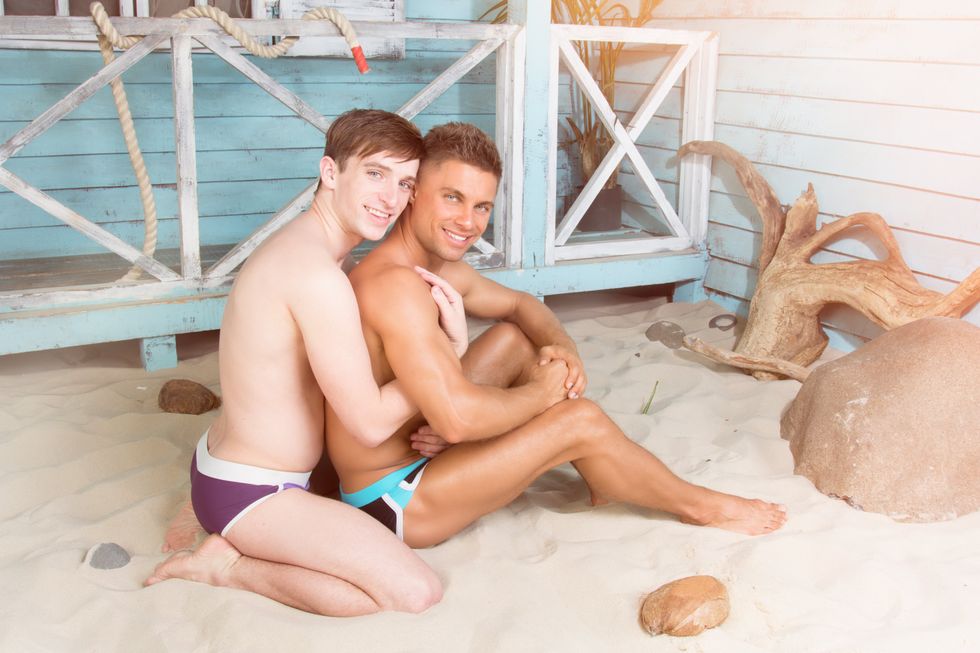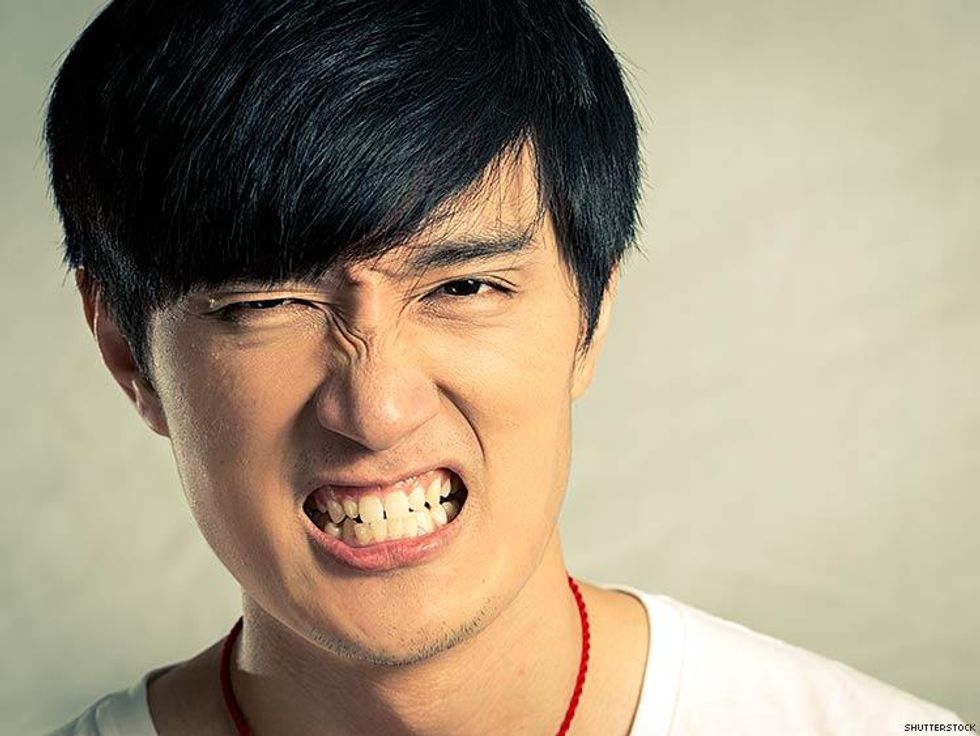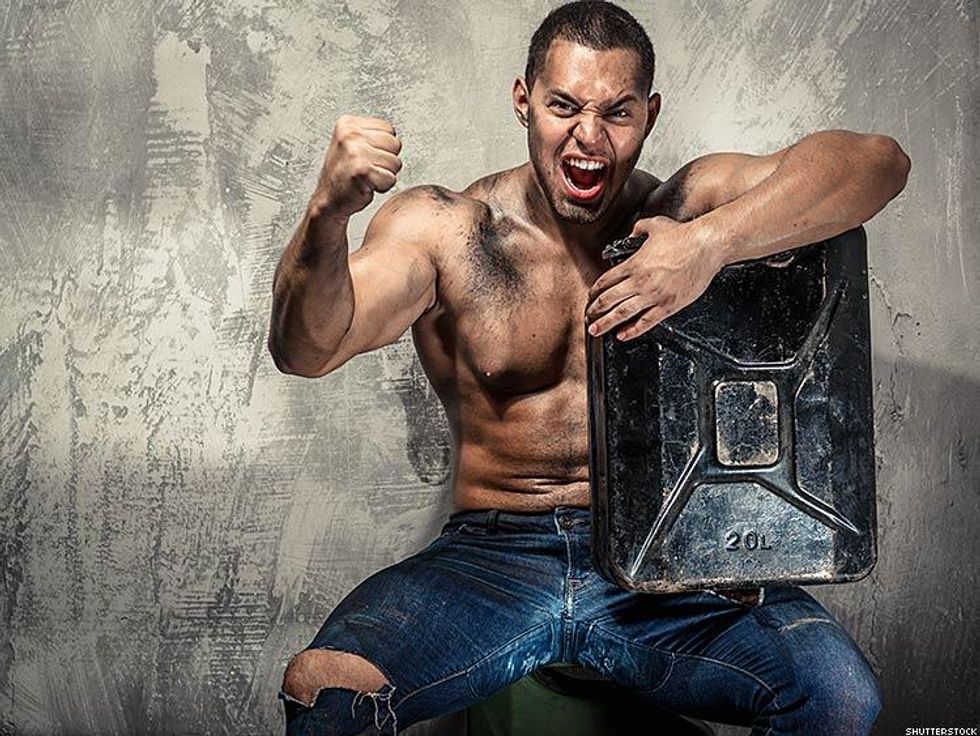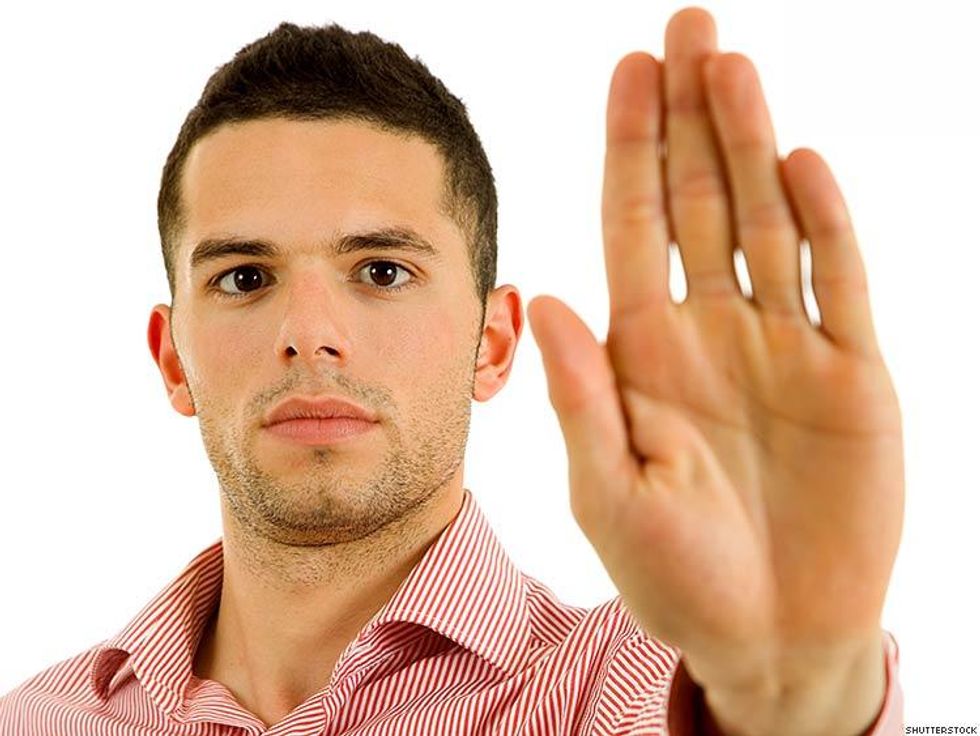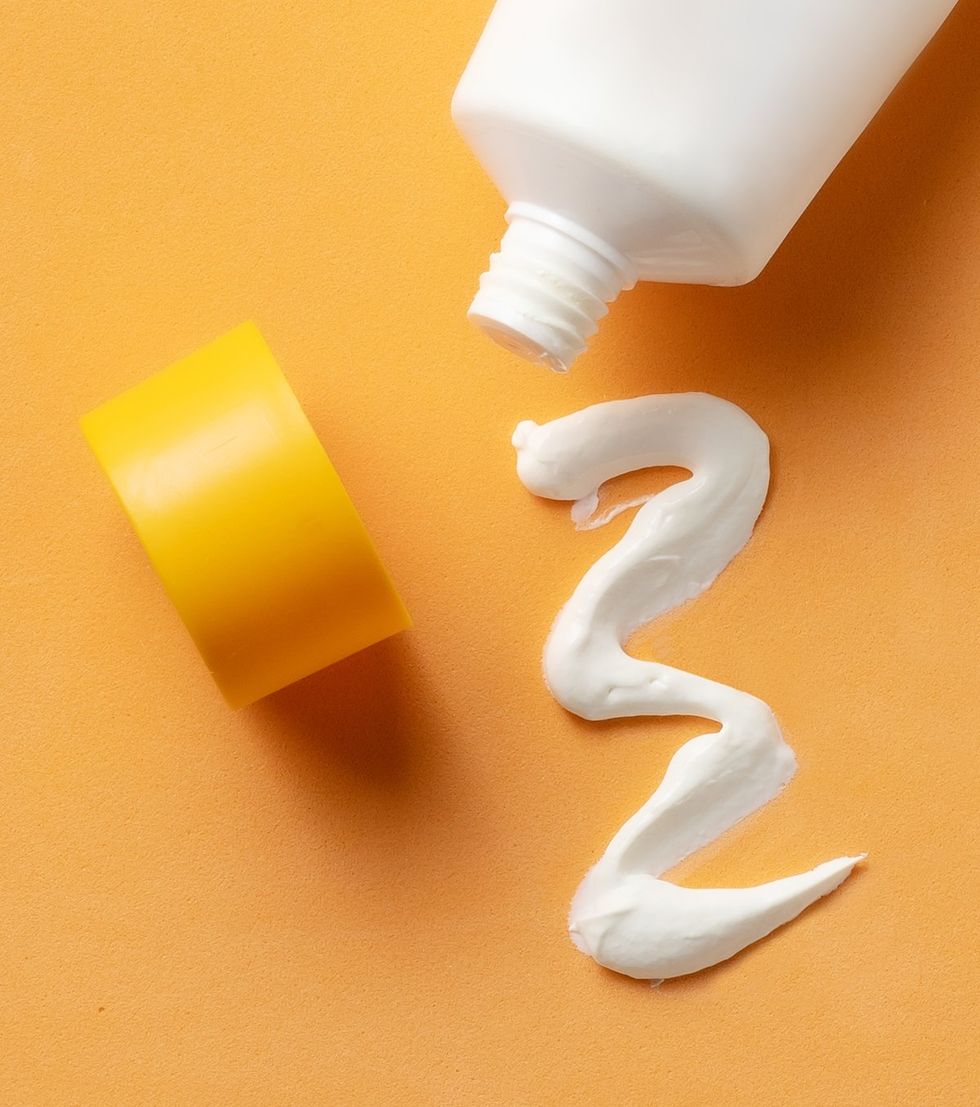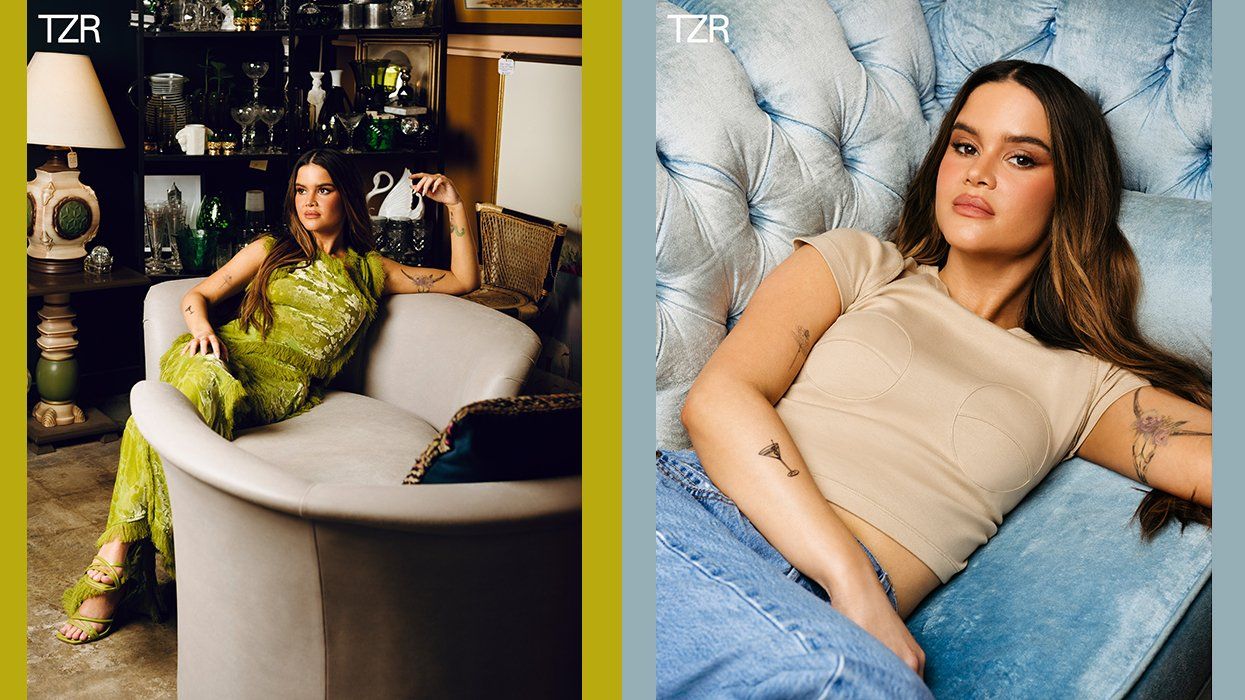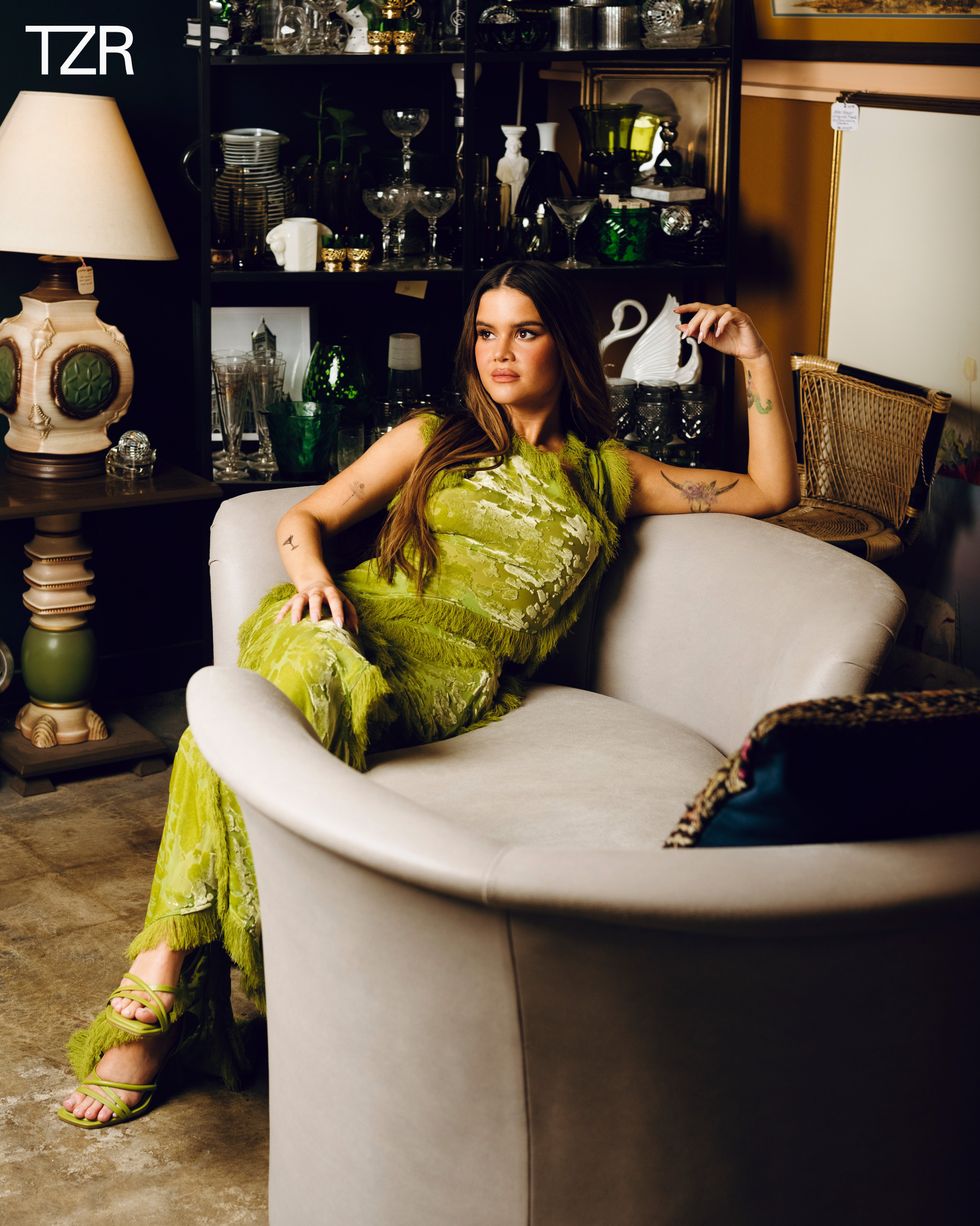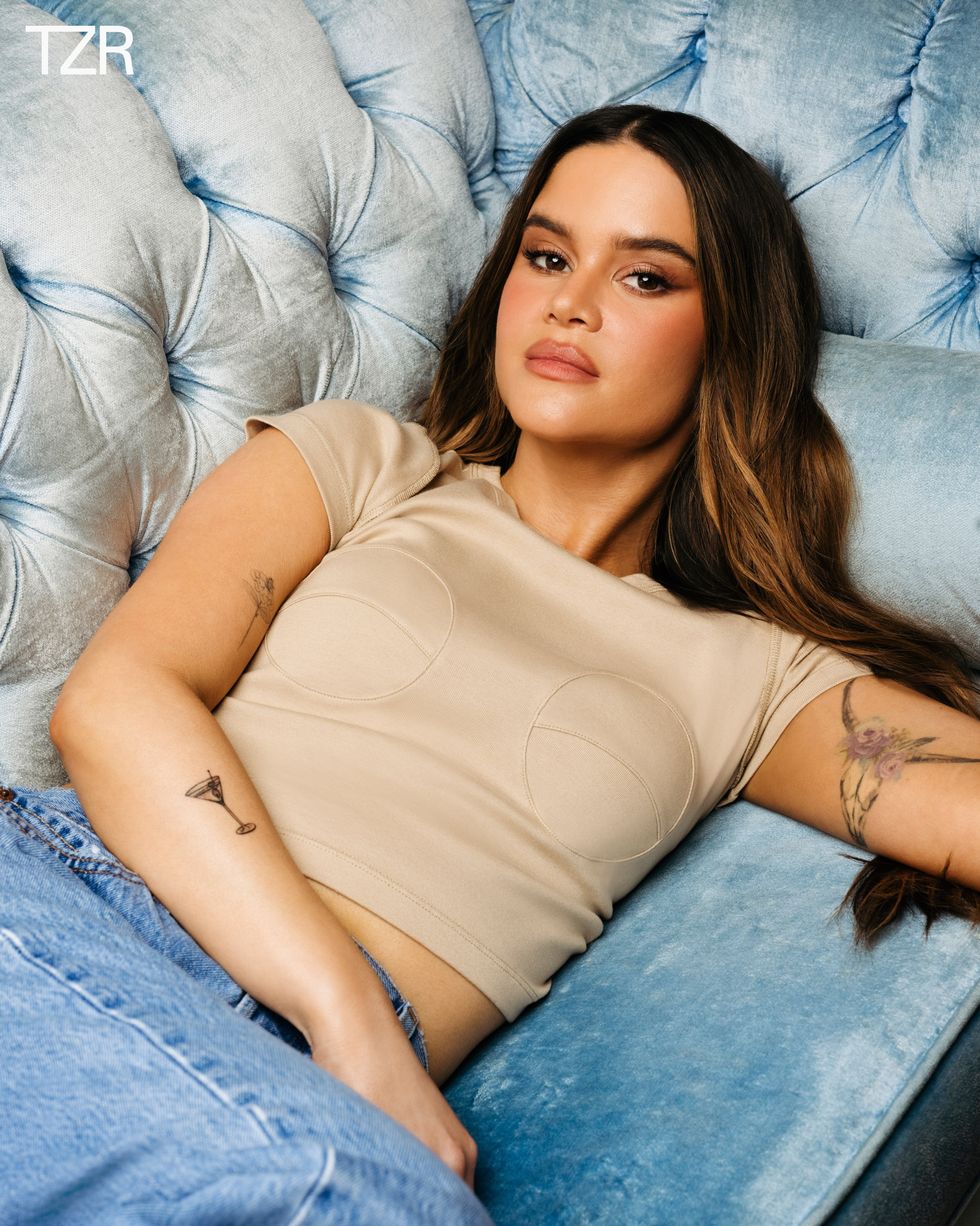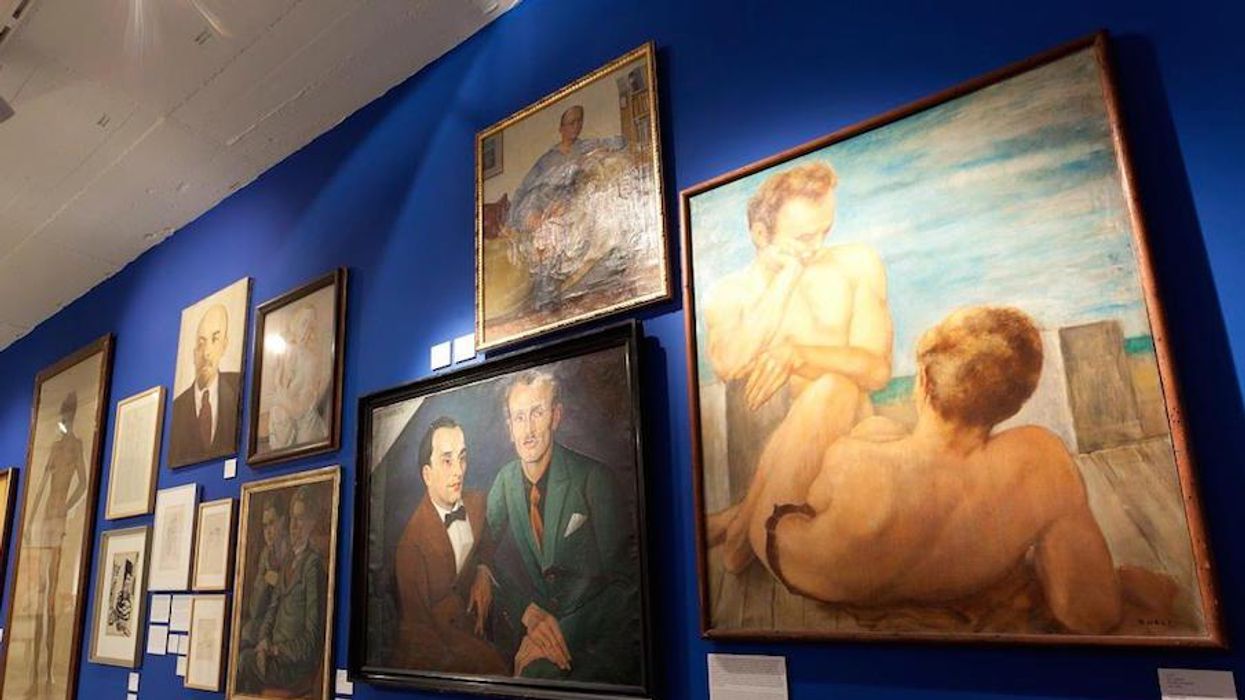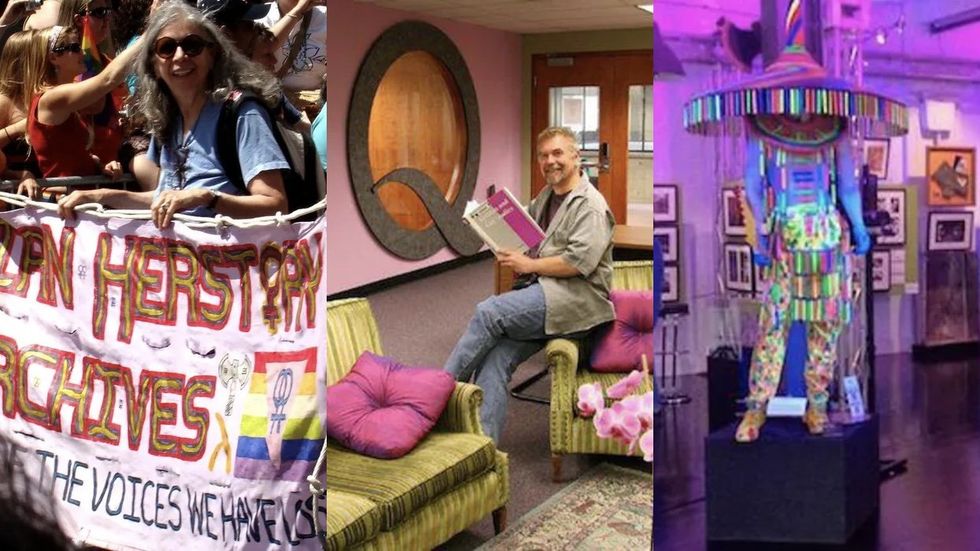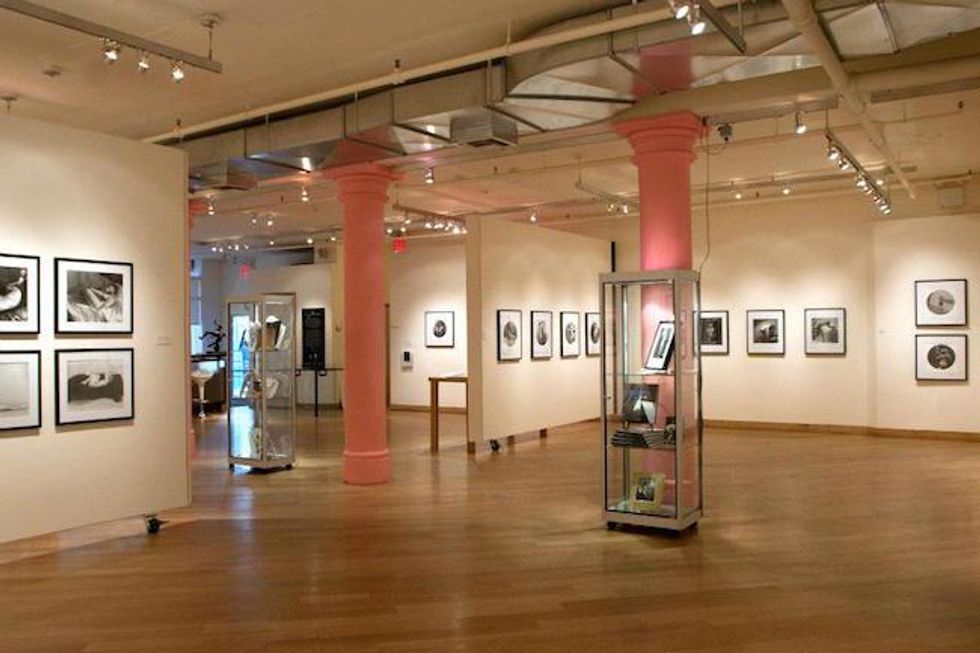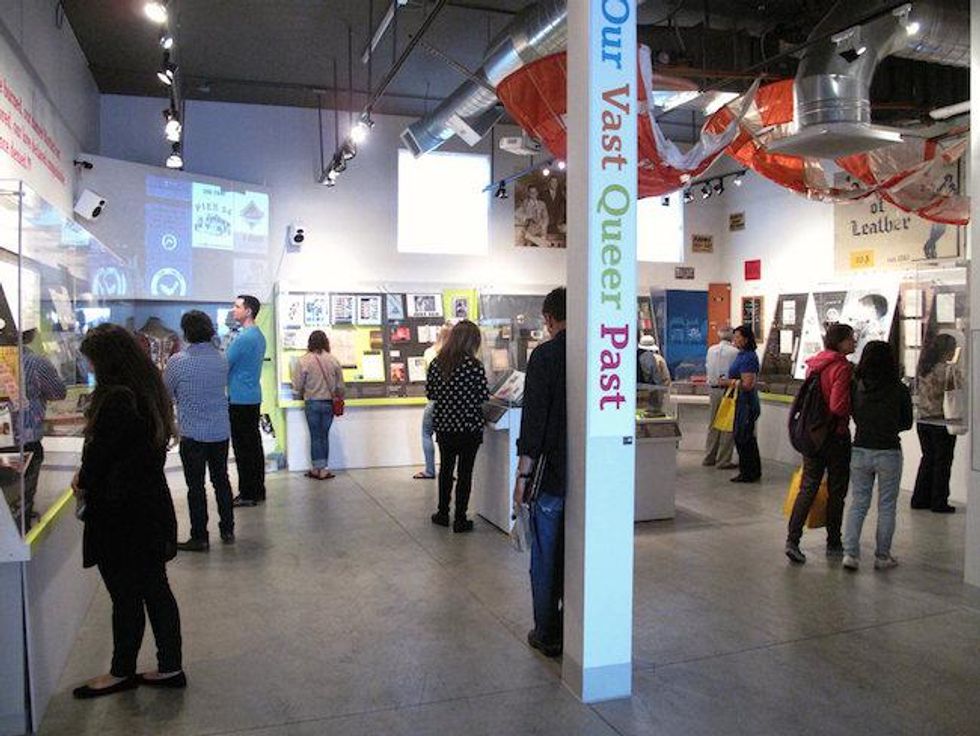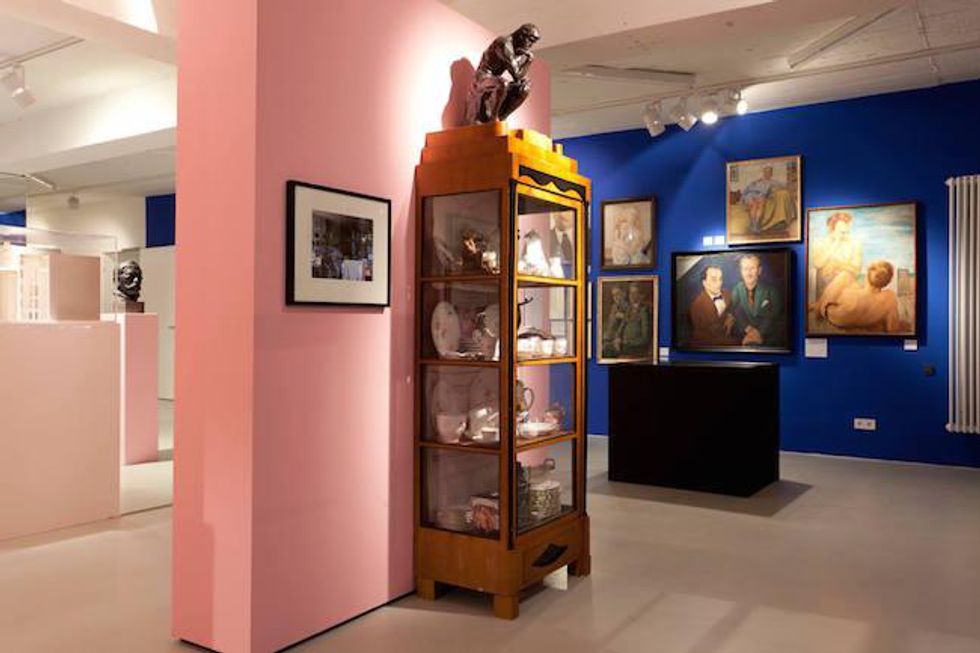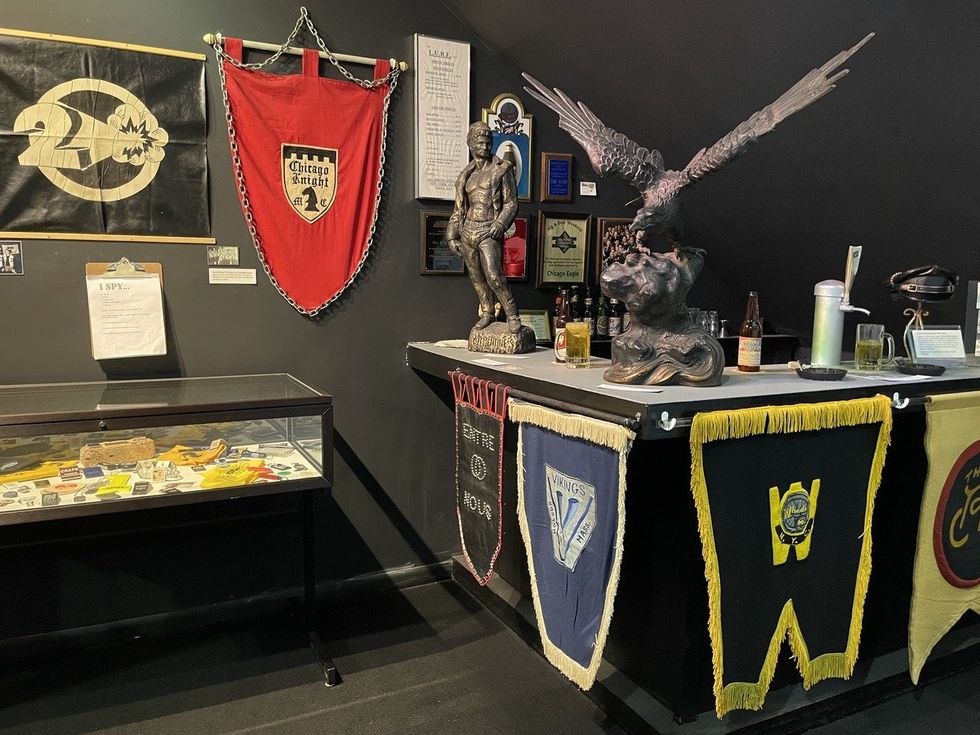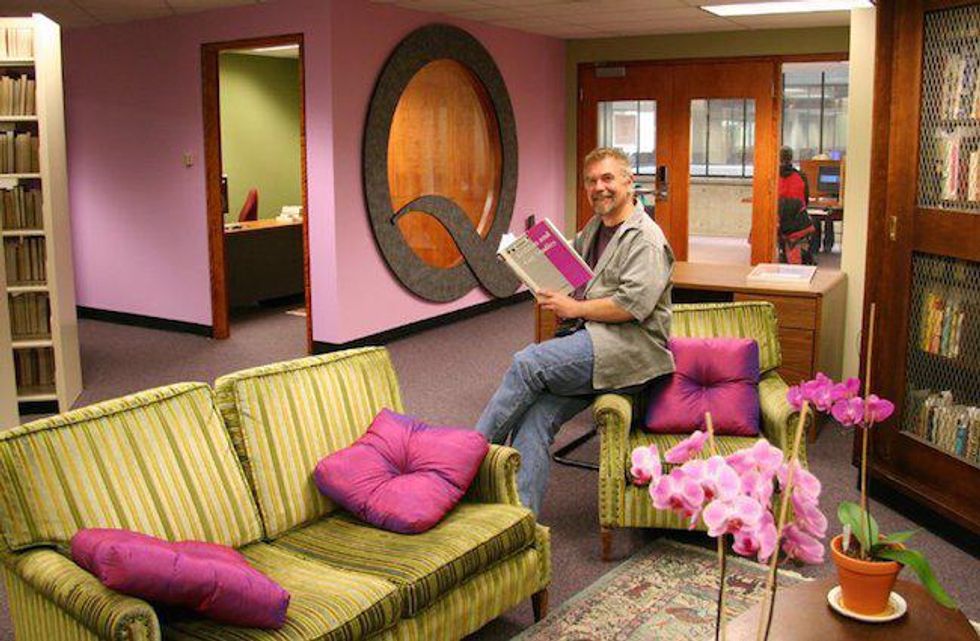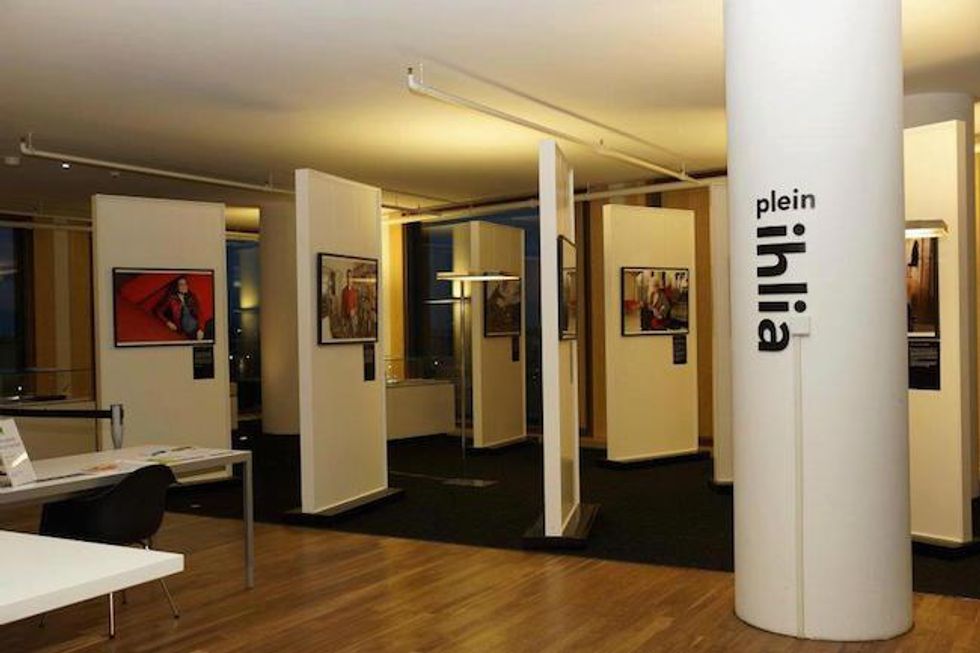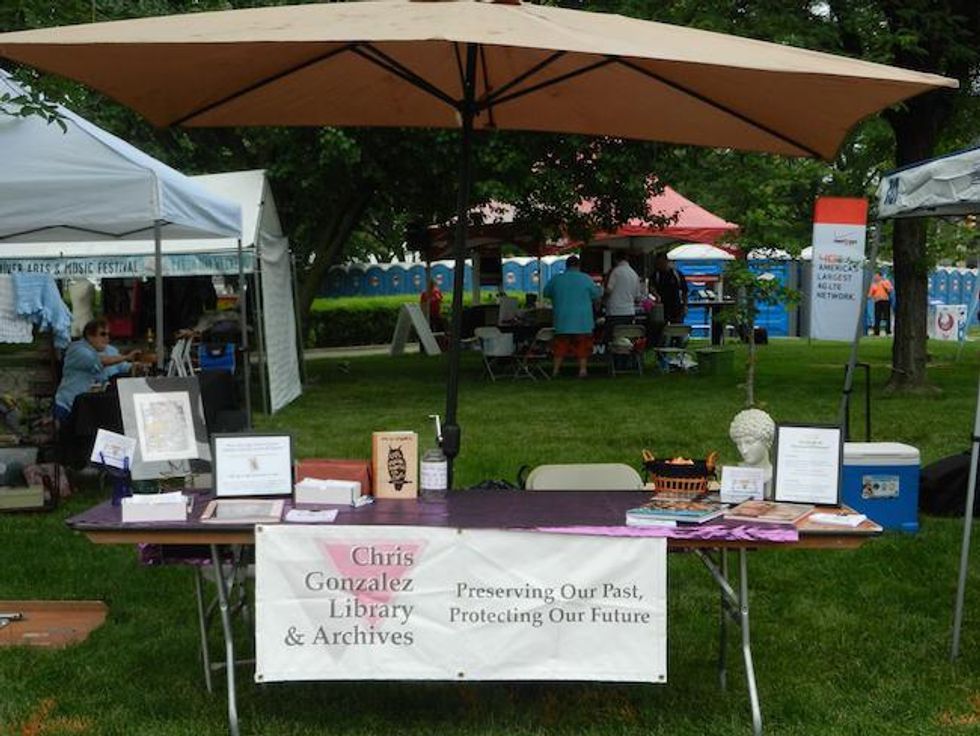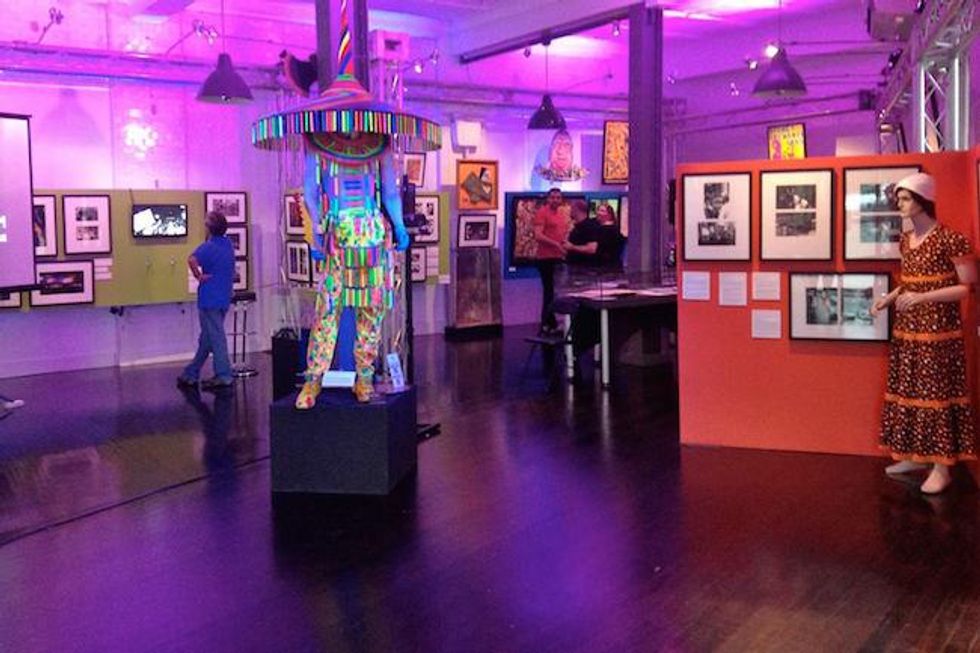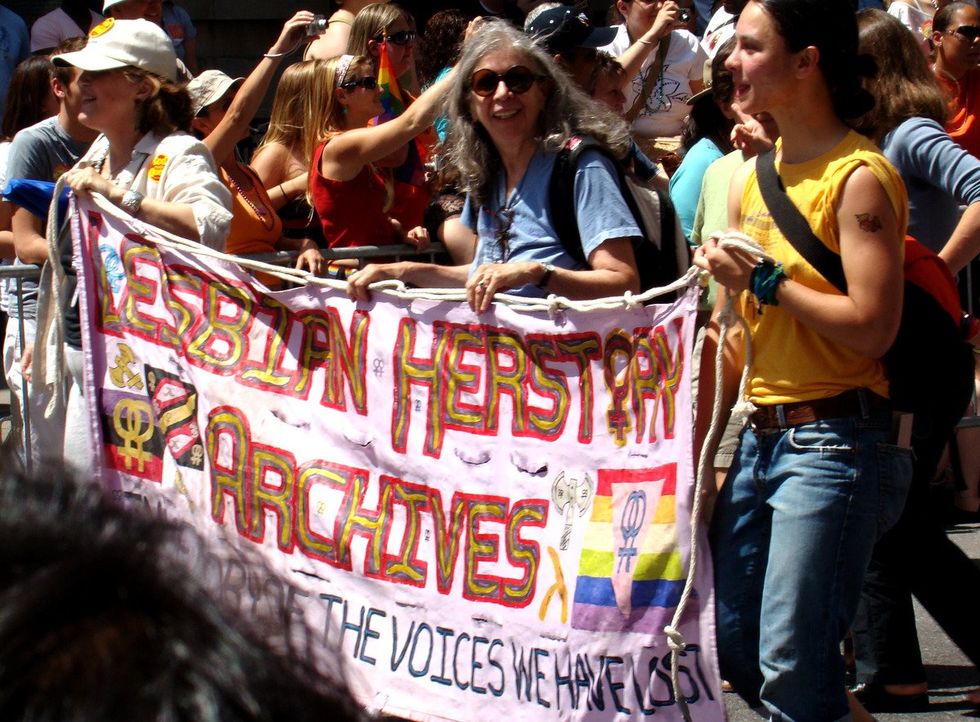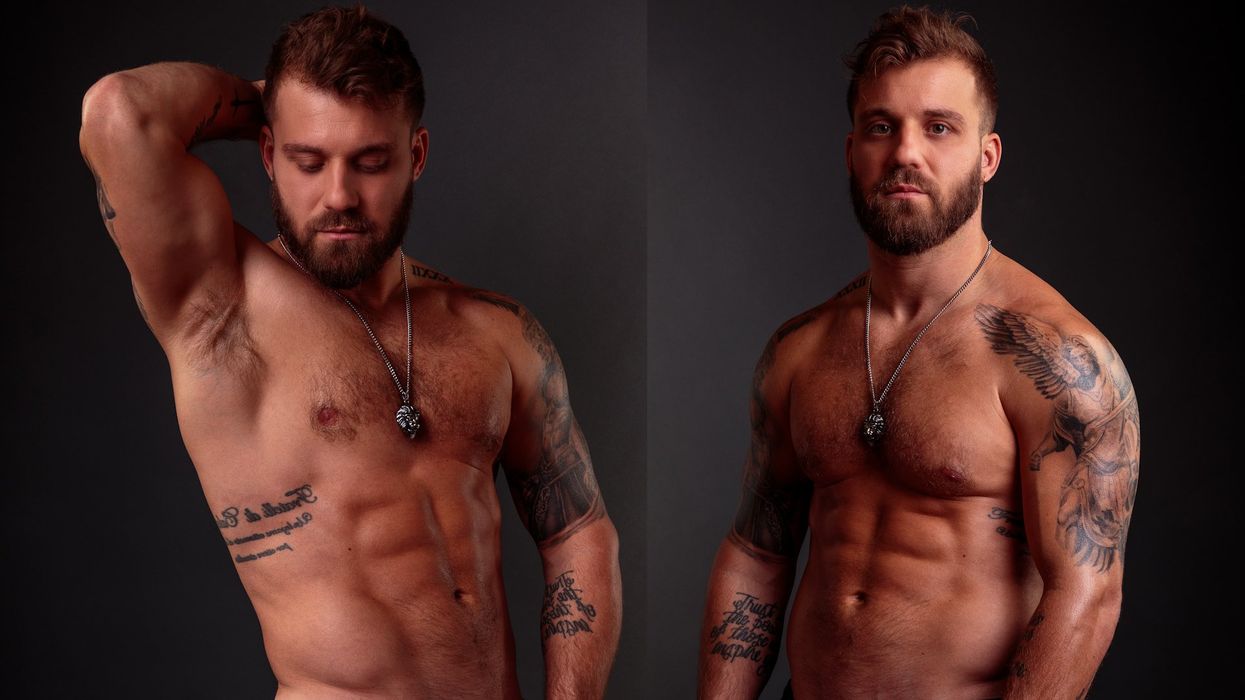Figuring out your orientation can be scary, but we got you!

Ann Rodchua/Shutterstock
Congratulations on possibly being bi. We might have haters, but it’s oh-so-fun.
That being said, figuring out your identity, especially when it’s in the more nuanced and greyer area, can be scary and stressful. There is absolutely no rush, and you’re allowed to take all the time you need. Because, in part, understanding your identity when it lands somewhere in the middle of the Kinsey scale can be a bit of a journey — but one worth taking.
“The only person who can name your sexual identity is you. Most folks when coming out will try on every letter of the alphabet mafia before settling on an identity that feels true to them,” Anne-Marie Zanzal, M.Div., coming out coach tells PRIDE “It is not about anything being different or more, it is about deciding what kind of partner will meet our emotional, physical, spiritual, and intellectual needs.”
While some people may know right away that they are bi or pan, others take longer to understand — and their feelings may even change over time, Sofie Roos, licensed sexologist and relationship therapist, tells PRIDE. “It’s common to feel that your sexuality is ‘floating’ from time to time, based on people and situations, something that’s another thing making it more difficult to know how you really feel.”
Also complicating the coming out process are outside forces, prejudices, and misunderstandings. “For example, bi folks in our society are sometimes seen as confused, going through a phase, promiscuous, straddling both sides because ‘they want their cake and eat it too,’” Dr. Frankie Bashan, board-certified sex therapist, clinical psychologist, professional matchmaker, and founder of Little Gay Book tells PRIDE.
Also, bi and pan folks are often “subject to hypersexualization and objectification, fueled by stereotypes and fantasies that portray bisexuality/pansexuality as a form of sexual entertainment for others. This can lead to the invalidation of their identities, erasure of their emotional experiences, and contribute to a hostile or dismissive environment.” Saba Harouni Lurie, LMFT, ATR-BC, licensed marriage and family therapist and founder of Take Root Therapy, tells PRIDE. And this can be highly damaging. “Research also suggests that bisexual/pansexual women may experience higher rates of intimate partner violence compared to their heterosexual and lesbian counterparts. ”
But perhaps even more challenging is facing those feelings of confusion and invalidation when they are internal. “The fluidity inherent in these identities can feel empowering but also lead to questions about authenticity, especially since some people may assume bi or pan individuals are 'confused' or going through a phase,” Jillian Amodio, licensed social worker LMSW at Waypoint Wellness Center, tells PRIDE.
Eek! OK that does sound a bit scary, but seeing the problem is the first step to overcoming it and happily and proudly embracing your bisexual identity, which is amazing by the way. And remember, the labels you use to describe your orientation are allowed to grow and evolve with you. But finding the right words that fit your sexuality is incredibly empowering, as is the community that comes with it. So, a little help never hurts!
Still, feeling confused? No worries, here’s how the experts say you’ll know if you're bi or pan.
1. You're conflicted by your feelings

Kateryna Onyshchuk/Shutterstock
Before we even get close to knowing our feelings, it's likely you'll go through some major confusion before you figure it out. This can be especially complicated for bi folks who are assigned male at birth says Lurie. That conflict can sometimes be a sign of your sexuality emerging.
"Those who are assigned male at birth can often experience a notable resistance to acknowledging or exploring their attractions to people who aren’t of the opposite gender," says Lurie. "This resistance is caused by societal pressure and traditional gender norms that discourage men from exploring or expressing attractions beyond heterosexuality. Therefore, this hesitation or resistance can be a signal that those desires exist and that that person might need time, self-reflection, and a safe environment to fully recognize and embrace their sexuality."
The good news is this is often just a phase, and it's the only part of your journey that can be classified as such! The inner conflict is placed on you by society, and your feelings can be especially confusing if you grew up in a more traditional household or have spent most of your life attracted to only one gender.
2. You watch porn with all genders...and want to act on it

Golubovy/Shutterstock
There was a study that (in my opinion, incorrectly) assessed that all women are bisexual because they experience arousal from watching lesbian porn, even if they identify as straight. Look, we’re animals. If you’re a sexual person presented with sexual stimuli, it’s probably going to turn you on. However, if when watching it you found curiosity burning in your, well, chest (and other parts), that might be a sign of something deeper says Roos.
"Many people who later realized they’re bi or pan started by just watching gay porn in phases where that made them way more turned on than hetero porn (and when looking back, this was the first sign of their sexuality), but that they out of shame or denial just said to themselves that they were too horny and justifying them not being bi or pan with that they never could have a relationship with someone of both genders," she explains.
So, if watching erotic videos of straight sex and queer sex all turn you on, and you want to act on it rather than just watch it, you might be bisexual.
3. Your sex dreams are bisexual AF

Lipstick - Official/Shutterstock
Even if you're not consciously ready to acknowledge your bisexuality, your subconscious may be. Roos says it's common for your dreams to offer clues about your true desires. "When we sleep, the subconscious tends to show up, and if you often dream about being intimate or having romantic relationships with different genders, then that can mean you should at least discover it to find out what it feels like outside of your dreams! Because the dreams often tell the truth to someone where their queer sexuality is deep down," she explains.
4. You feel drawn to more than one gender

NeonShot/Shutterstock
Do you feel yourself being strongly drawn to more than one gender? Well, that's a pretty clear sign says Roos. “If you’re attracted to people of the opposite gender, but have that one friend ... who you just feel a bit more for in a romantic or sexual way ... then that’s a quite clear sign of being extremely curious and maybe being bi or pan,” she explains.
“This is often a key realization that goes beyond preferences or ‘admiration.’” adds Amdio. “Attraction means a lot of different things to a lot of different people. Do you get butterflies, blush, feel tingling in your genitals, or find yourself admiring certain features, just to name a few.”
5. "Gay" or "straight" just doesn't fit

Krakenimages.com/Shutterstock
Sometimes the clearest sign isnt about resonating with an idnentiy so much as it is not vibing with a label. Amodio says that feeling invalidated by binary labels is a sign that you're somewhere in the liminal space between. "Many bi or pan individuals feel discomfort or resistance when trying to fit into labels like "gay" or "straight." This is a natural sign that your identity might be more fluid or inclusive than binary categories allow," she explains.
6. Attraction isn't just about physical attributes for you

CREATISTA/Shutterstock
Do you find that what you're drawn to most is personality, essence, a vibe, rather than specific physical attributes? Again this is pinging the bisexual and pan radars, says Amodio. "Some pansexual individuals, in particular, describe attraction as being tied more to personality, energy, or connection rather than specific gender expressions," she says.
7. You find yourself wanting more intimacy than just friendship with your loved ones

Beatriz Vera/Shutterstock
Warning this one may hit extra hard. Have you ever found yourself craving MORE with someone you are close to? A friend who you just cant seem to close enough to. Well, that probably means there's something deeper happening, says Lurie.
"You may find yourself wanting or craving a deeper, more intimate connection—beyond friendship—with people you feel close to who are not of the opposite gender," she says. "This longing can reflect the broader scope of attraction experienced by bi or pansexuals, where emotional closeness and connection can naturally evolve into romantic or physical attraction, regardless of gender."
8. The word resonates with you

The Good Brigade/Getty Images
How do you feel when you hear the word bisexuality or when it is described to you? Did something click? Roos says to take note of that feeling. "Many people have actually not heard much about bisexuality, and especially not about pansexuality, so if you hear someone explain it for you and feel that the signs cope with what you feel, almost like an 'oh, okay' feeling that sets words on your feelings, then it’s worth exploring further!" she advises.
The same is true when you see, read, or hear bisexual narratives. Did you watch XO, Kitty, and feel like you were looking at a mirror? Did Challengers hit a bit too close to home? Again, those feelings may be pointing you toward a personal revelation. "Resonating with bi or pan communities or narratives," is a sign of bisexuality agrees Amodio. "If you feel seen or understood when hearing about bi or pan experiences, that sense of alignment can also be an indicator."
9. You take "Am I Bi?" quizzes online

Shutterstock
Yes, I'm calling you out for it. There are plenty of multiple-choice tests out there that will "tell you" whether or not you're bisexual. If you're taking them, they're not "just for fun" or to "pass the time," as you'll likely say if you're caught. You're more likely taking them to either have the quiz tell you you're not bisexual or for it to remind you of what you already know.
10. Sex feels right with all genders

Roman Samborskyi/Shutterstock
Usually, when straight people have sex with their own gender, they can take it or leave it. Likewise, when gay people usually have sex with their own gender, it’s like a person with poor eyesight finally got a pair of contacts and saw the world as it was meant to be seen. However, if you’ve tried, enjoyed, and felt like sex with all genders feels as sex should, you’re probably bi.
And finally... You just know

Pedro Ignacio/Shutterstock
Okay, I know, this one is a little "duh." Truth is, denial is very much a thing, and it's likely if you're questioning your sexuality, you already know you're at least not completely straight. Plus, once things all click and you do step into your beautifully bisexual skin, you'll probably have the "I knew it all along" feeling, and it will hopefully bring you a little peace.EXPERTS
EXPERTS CITED:
Dr. Frankie Bashan, board-certified sex therapist, clinical psychologist, professional matchmaker, and founder of Little Gay Book.
Anne-Marie Zanzal, M.Div., coming out coach
Sofie Roos, licensed sexologist and relationship therapist & author at Passionerad
Jillian Amodio, licensed social worker LMSW at Waypoint Wellness Center
Saba Harouni Lurie, LMFT, ATR-BC, licensed marriage and family therapist and founder of Take Root Therapy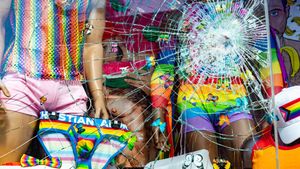



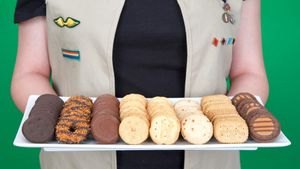






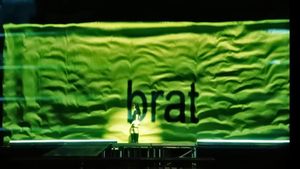

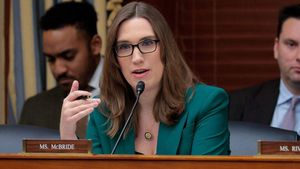
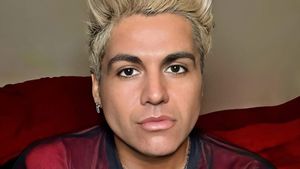
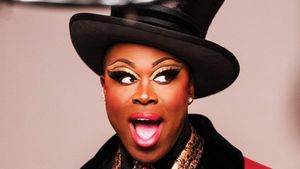







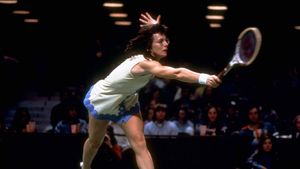



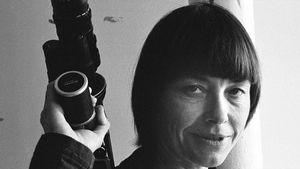







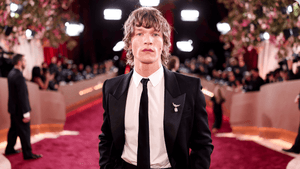
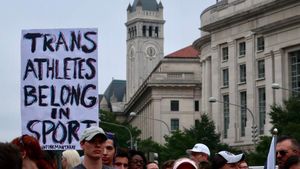
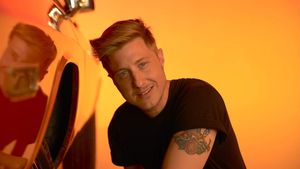
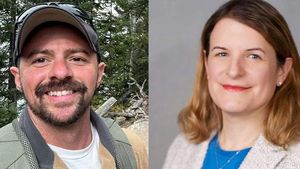



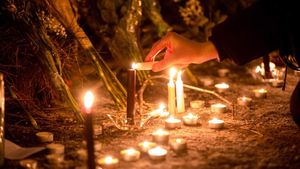

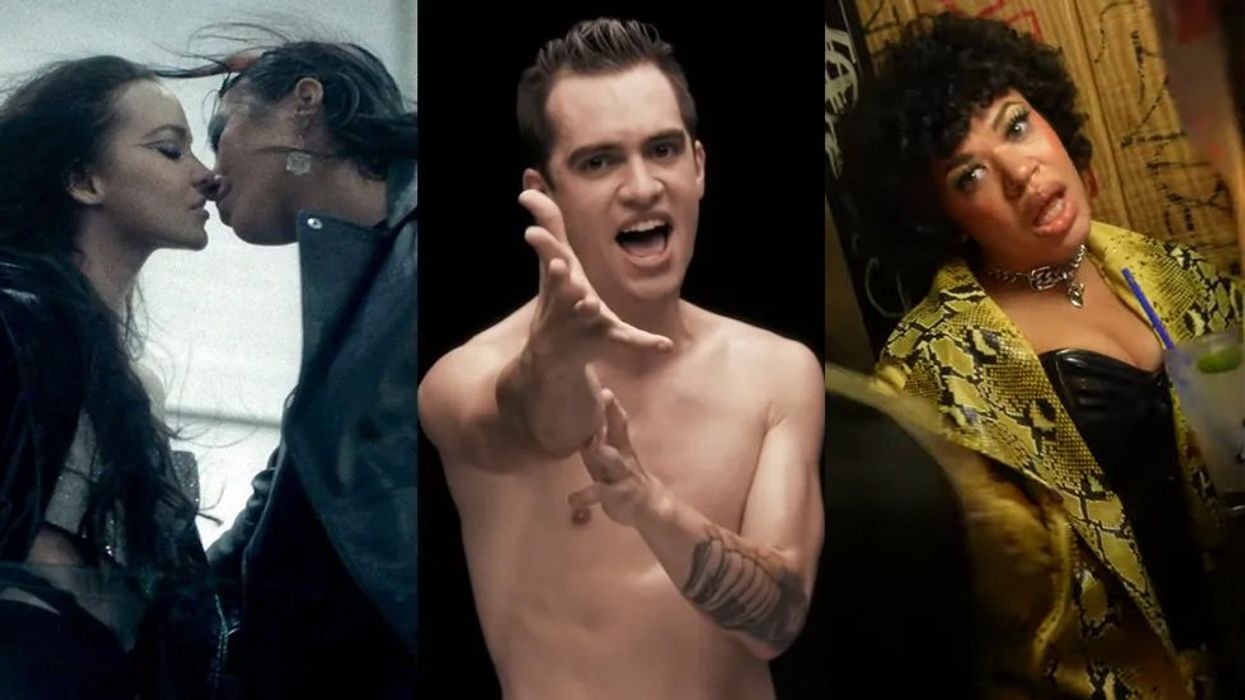
 35 bisexual pop anthems we have on constant repeatYouTube.com/Binoy
35 bisexual pop anthems we have on constant repeatYouTube.com/Binoy






